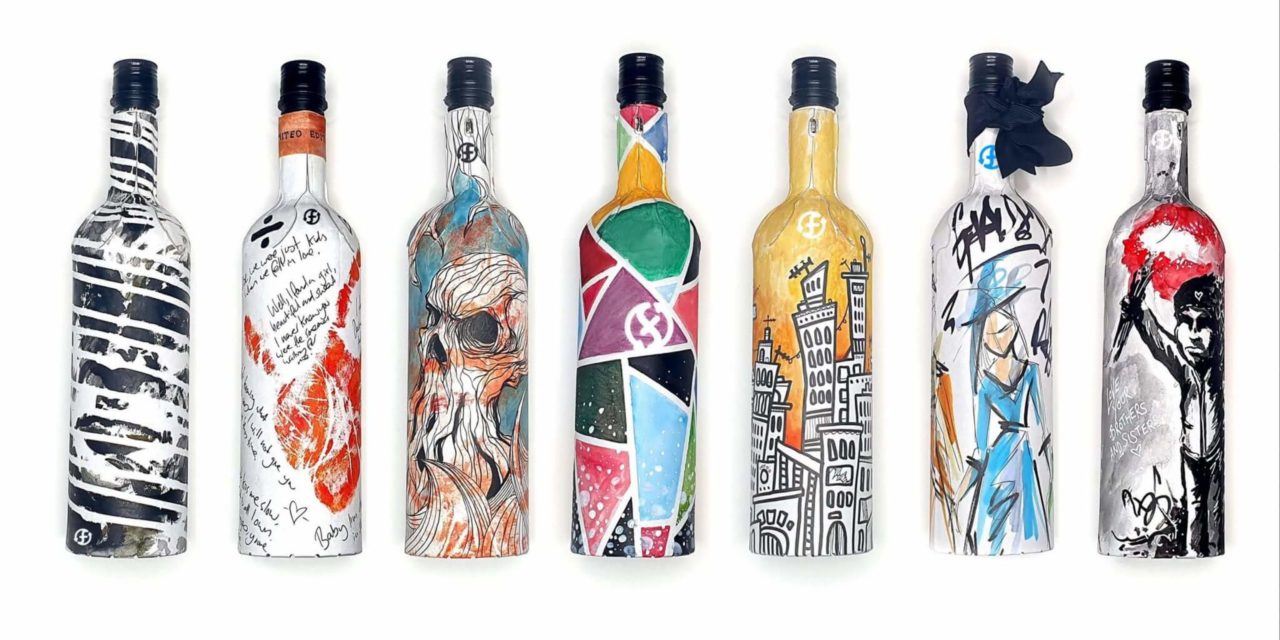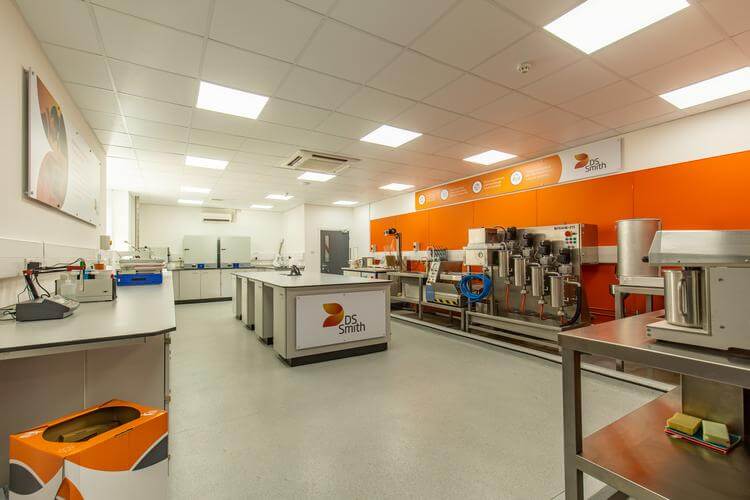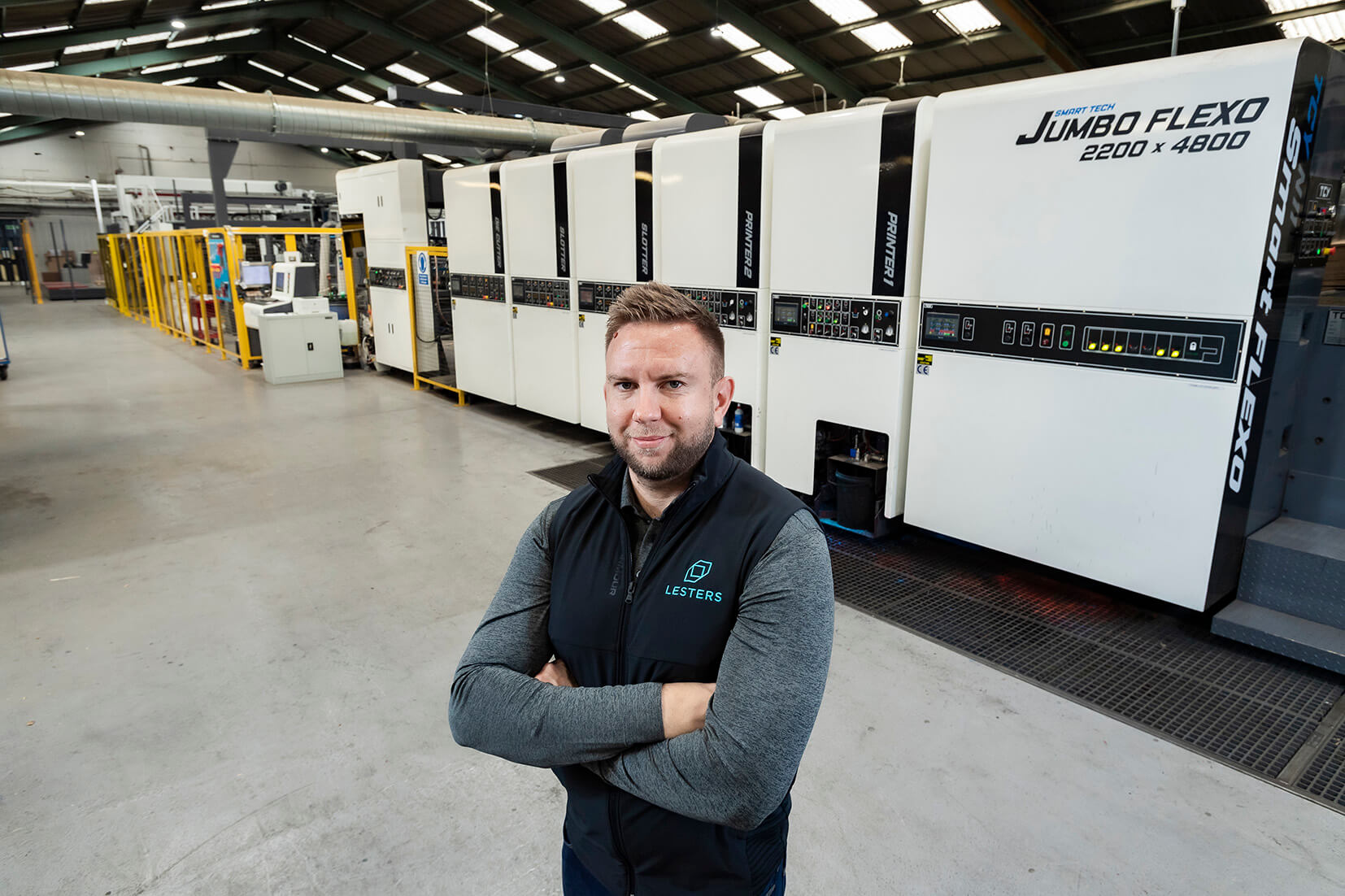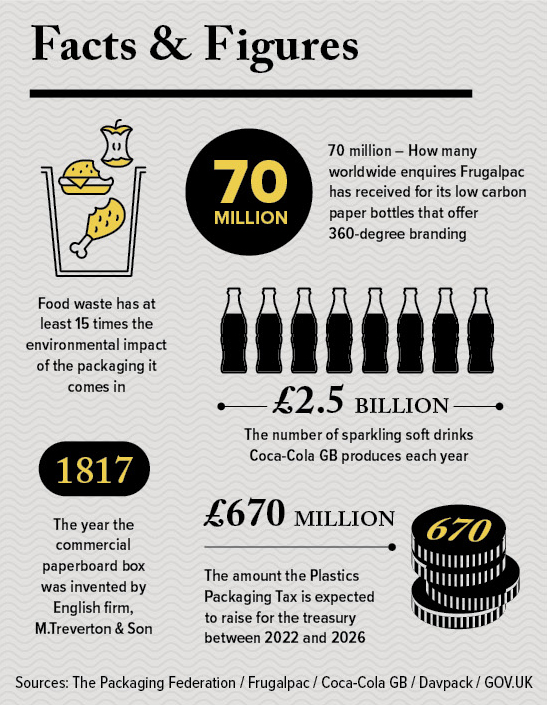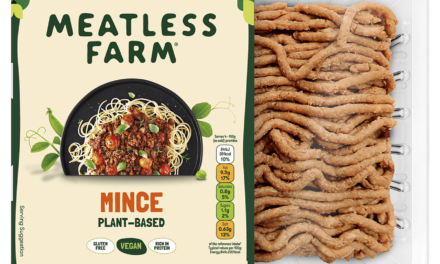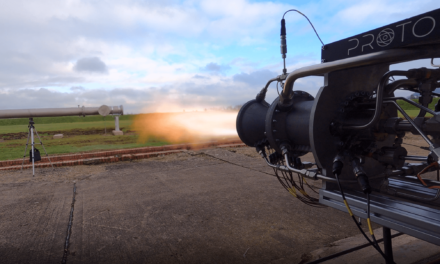Renew, recycle, reform
Sectors: Packaging
Above: Ipswich based sustainable packaging company, Frugalpac, manufactures the world’s first commercially available wine and spirits bottle made from recycled paper. Credit: Frugalpac
The packaging industry across the world saw a surge in demand during the Covid pandemic. As that abates, the focus returns to environmental concerns. The UK leads in some areas but lags in others.
Ruari McCallion
Above: Billy Hutchinson, Managing Director of Lesters, which has recently boosted its sales by 120% to £16m and taken on another 15 staff to cope with rising demand. Credit: Lesters
While the UK is not a global leader in packaging machinery – those honours belong to Germany, Italy and Japan, primarily – it still packs a hefty punch.
Packaging is not restricted to plastic, of course. Paper and cardboard have seen a revival in activity and demand for boxes and bags was supercharged by the rise in home deliveries during lockdowns.
“There’s no doubt that the pandemic saw a switch from bricks and mortar purchasing to online shopping and we have certainly benefitted, with sales up nearly 120% over the last 12 months,” said Billy Hutchinson, managing director of Lesters, a packaging materials company based in Burntwood, Staffordshire. It has a particular speciality in large boxes and in-store cardboard displays. But the outlook is not all rosy.
“The major challenge will be managing the huge rise in energy and material prices. We are expecting paper increases in the region of 30% and are already planning on how we can mitigate some of the pain,” he explains. The company has invested heavily in new technologies and people and is looking into opportunities such as replacing plastic with cardboard packaging solutions.
Plastic pollution
The industry in the UK has a severe issue with recycling capacity. While Lesters uses only water-soluble, vegetable-based inks on its cardboard boxes, plastic pollution is a major worry. Almost two-thirds of adults mention it in their top five concerns in Mintel’s Soft Drinks Survey. According to WRAP, the Waste and Resources Action Programme, rigid plastic packaging recycling was estimated at 440,000 tonnes in 2020; it could rise by nearly 300,000 tonnes by 2025, if all plans come to fruition. Film recycling resources were estimated to be just over 205,000 tonnes in 2020.
But demand for packaging in the UK seems to have decoupled from GDP growth. In the past 10 years, GDP and household expenditure have grown by 20% but the UK’s per
capita packaging use has remained virtually unchanged. People seem to be committed to recycling: end of life packaging represents less than 20% of total household waste and less than 3% of unrecovered waste to landfill. Aluminium cans are, now, nearly 100% recyclate; virtually no new material is used in food and beverage cans.
Recycling solutions
Bob Schiavone, global marketing director of design, toolmaking, and prototyping company R&D/Leverage strongly asserts that plastics in general and PET in particular are environmentally responsible because they use less energy and material and generate less CO2 and wastage in production than glass and aluminium. He has a point.
Using recycled materials requires 90% less energy in the case of PET but only 30% less for glass. Aluminium cans require twice as much energy per kilogram as PET to manufacture from virgin materials but recycling requires 95% less energy than a new unit, according to Material Selection and Processing resources produced by the University of Cambridge. Light weighting of PET has significantly reduced material usage for a typical 500ml PET bottle.
“The problem in the plastics industry is recycling,” says Bob. “In both the UK and the US, we have been sending overseas things we can’t recycle. If you compare PET to aluminum, PET generates 60% less greenhouse gases, uses 31% less energy and produces 29% less solid waste, so why not fix the recycling? Instead of addressing that issue, we are talking about banning plastics.”
Caps to consider
Efforts to keep plastics out of the waste stream include the EU Directive on Tethered Caps, which becomes effective in 2024, and the Plastics Packaging Tax of £200/tonne for plastics that contain less than 30% recycled material.
Tethering is intended to prevent caps becoming separated from the bottles themselves but the tethering could make the whole closure system – neck finish and cap – heavier and, therefore, more energy-intensive. Universal Closures Ltd (UCL), of Tewkesbury, Gloucestershire, is already ahead of that curve.
“The new GME 30/40 PET finish is the first international standard specifically developed for attached (tethered) closures. The thread diameter of the neck is just 26mm, down from 28mm of the PC 1881, and the neck ring diameter down from 33mm to 29mm,” says Mark Smith, UCL Senior vice president.
“This enables the tethered cap strength requirements and performance standards to be met while, at the same time, reducing the weight of the finish – often the single heaviest element in a PET bottle.”
UCL’s track record includes being the first to design a cap that didn’t need a liner to create a seal, saving weight, reducing manufacturing complexity and making recovery and recycling easier. It designed Coca-Cola’s single-material sports cap closure, which improved recyclability, and has recently launched a new design especially for injection-moulded bottles, like milk bottles, that have uneven neck finishes and traditionally relied on liners for effective sealing.
“We have created a single-material ‘wedge seal’ that has a series of blades that lie diagonally. When they compress, they don’t form a uniform line; they follow what a liner would do in the critical areas,” Smith explains.
“One of our licensees in the US has developed a bio additive that makes a typical HDPE resin biodegrade, cutting it from hundreds of years to a manageable timespan: as little as 24 months.” UCL’s design process will include ensuring shelf life for the biodegradable material and checking for leaching and other safety concerns.
Paper-based bottles
The UK also has innovative players in other packaging materials. Cambridgeshire’s Pulpex, a joint venture between drinks giant Diageo and venture management company Pilot Lite, claims to be offering a sustainably-sourced paper-based bottle that contains no plastic whatsoever – not even as a liner. It is initially expected to be seen as a Johnnie Walker whisky bottle. Other corporate partners include GSK, Unilever, PepsiCo, BP Castrol, and Estee Lauder.
Essex-based winemaker and online retailer The English Vine has launched a 75cl, paper-based Frugal Bottle, made by Frugalpac from 94% recycled paperboard with a food-grade liner to hold wine or spirit. The bottles, which can be refrigerated, are made at Frugalpac’s facility in Ipswich.
While MarinaTex, of which hopes were high in our previous edition, seems to have been becalmed for the moment, the news from the packaging sector is that the UK industry may be relatively small but it is full of novel, innovative and influential ideas.
News in Brief
- Cornwall’s Flexi-Hex, the company behind a patented packaging honeycomb design made from more than 85% recycled paper pulp, has secured a £1.25m investment to help support its global expansion and create new jobs.
- Shropshire packaging manufacturer Sirane has made a multimillion-pound investment in a third site in Telford for its board division. The site will also allow the company to invest further in sustainable packaging technologies. “We needed additional manufacturing space to enable us to continue being at the forefront of packaging innovation. Technologies which allow for plastic replacement in packaging are becoming increasingly important, and this investment is about both the present and the future. It will also give us space to expand our co-packing and fulfilment business, an area which has seen significant growth in the last few years,” says managing director, Simon Balderson.
- Leading European packaging manufacturer Coveris has recently completed a two-year, £3m transformation project at its Cramlington labels facility in Northumberland. “As our biggest single investment in the site to date, this project is a truly transformational one for both the Cramlington plant and the wider Coveris labels business. Increased capacity and production flexibility not only enable us to better serve the needs of our customers in a more agile way, but also in a more sustainable way,” says site manager Andy Hedley.
- British multinational packaging business, DS Smith has opened a new £750,000 Fibre and Paper Development Laboratory at its flagship Kemsley Paper Mill in Kent. The laboratory will be used for researching technologies that enhance the performance and sustainability qualities of fibre-based packaging, including coatings and barrier technology, wet-end chemistries, surface chemistries, repulpability and recyclability.

